
14 minute read
ABL Dispatch
ABL Dispatch — The Latest Industry News from Washington
BY JOHN BODNOVICH, ABL EXECUTIVE DIRECTOR
I want to take a moment to thank the members of the TLW who help form American Beverage Licensees (ABL). Your support makes possible the work we do on behalf of our members and, without it, there would be a sizable void for those beverage licensees whose voices need to be heard.
We all know that 2020 was a challenging year, particularly for our on-premise members, and the bar and tavern community. Despite the challenges, though, these licensees have persevered with great sacrifice, ingenuity and organization to continue to stay in business, provide jobs to their staff, and serve their communities in a safe and responsible manner. While it may be necessary to be physically distant, the need to be socially connected remains just as important as ever as we deal with the implications and outcomes of COVID-19. You have commendably filled that need for many of your friends and neighbors who otherwise would be alone.
Already into 2021, there are no guarantees that life is suddenly going to improve for those facing COVID-19 or for those whose businesses have been derailed thanks to the virus. But I am hopeful that, in the coming months, we’re going to begin to see some improvements for those most susceptible or at risk to the virus, relief for those businesses that have been operating in a limited manner, and maybe most importantly, a return of confidence to your customers to feel more comfortable visiting their favorite local bars and taverns.
Please know that ABL is going to continue to work on your behalf to share your stories, provide counsel and seek relief to the best of our abilities. We remain stronger when we are all together and prepared for the challenges that we anticipate or, like in 2020, enduring the ones we didn’t see coming.
SAVE THE DATE
ABL plans to hold its Annual Meeting from October 17-18, 2021, at the Hilton New Orleans/St. Charles Avenue in New Orleans, La. More details to follow …
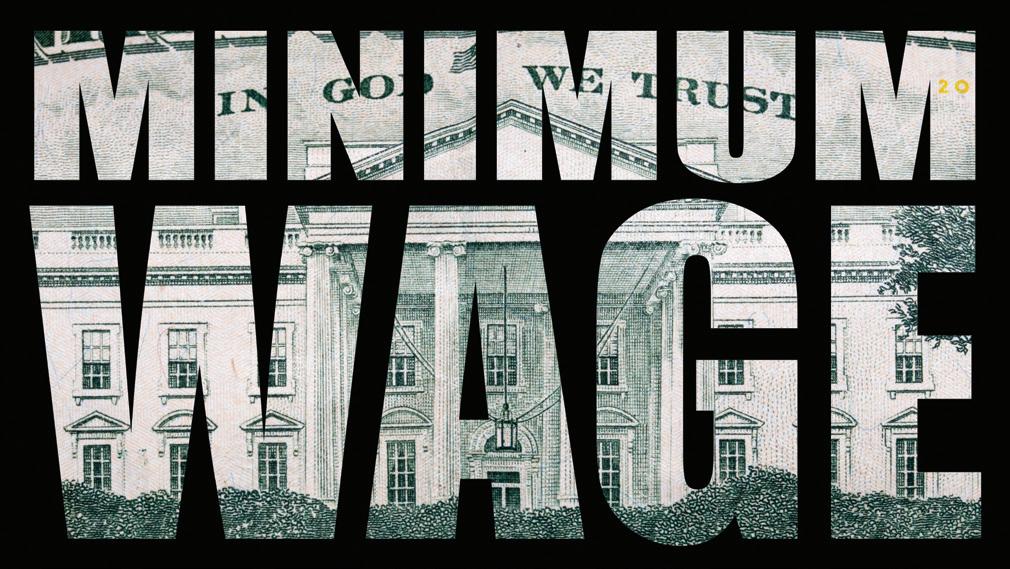
$15 AN HOUR MINIMUM WAGE INCREASE
ABL has voiced its opposition to plans to increase the federal minimum wage and eliminate the minimum cash wage (tip credit). The association has pointed out that more than doubling the current federal minimum wage for non-tipped employees would have a drastically negative effect on hospitality businesses, which have been hardest hit during the pandemic and can least afford another increased cost.
Phasing out the minimum cash wage for tipped employees, which is currently utilized in some form in 43 states, would also have a devastating impact on bars and restaurants. The industry’s narrow margins have been wiped out by the coronavirus pandemic. If these family-owned and operated businesses can’t afford to open their doors, they can’t pay employees any wages — minimum or otherwise.
While such a significant minimum wage increase would lead to tough choices for small beverage business owners in any year, an increase of this size this year would undoubtedly result in staff reductions and higher menu prices for customers. Unfortunately, it is unlikely even those business changes would be enough to offset increased labor costs at a time when many of these local businesses are limited to just 25-50% capacity and face reduced hours of service.
The Raise the Wage Act of 2021 is similar to a bill that passed in the House in 2019 and would phase in the increase, from $7.25 to $9.50 this year to $15 by 2025. Perhaps most critical to on-premise hospitality businesses, the proposed bill would raise the tipped minimum wage and youth minimum wage by phasing both out by 2027. After 2025, the minimum hourly rate would be indexed to national median wage growth using Labor Department calculations. The federal minimum wage was last raised on July 24, 2009, when it rose from $6.55 to $7.25 per hour, the last step of a three-step increase approved by Congress in 2007. Before 2007, the minimum wage was set at $5.15 per hour for 10 years.
ABL is going to continue to point out that raising the minimum wage on business owners who are struggling to keep their doors open during the pandemic would have a negative impact on these businesses, employees and customers should they be forced to cut staff and/or raise prices. This sentiment is supported by the recent, nonpartisan Congressional Budget Office score, which found that the legislation would reduce employment by 1.4 million workers in 2025, increase the budget deficit by $54 billion from 2021 to 2031, and lead to higher prices for goods and services.
Members of the beverage alcohol industry are familiar with state-by-state alcohol laws that best fit the culture and economics of each state. One size does not fit all for alcohol laws and the same is true of state minimum wage laws. When it comes to the cost of living and goods, the real diversity amongst states is not insignificant. Imposing a massive, one-size-fits-all increase of a federal minimum wage does not take into account the very real differences for employers in New York City and Oshkosh. At a time when most everyone is rooting for their favorite bars and restaurants to survive the pandemic, Congress should be working to identify programs and policies to help hospitality businesses stay alive so they can provide jobs that lead to an economic recovery. Congress should not pass legislation that would inhibit local beverage businesses from hiring more workers.
HELP PASS THE RESTAURANTS ACT
U.S. Sens. Roger Wicker (R-MS) and Kyrsten Sinema (D-AZ), and Reps. Earl Blumenauer (D-OR) and Brian Fitzpatrick (R-PA) introduced the Real Economic Support that Acknowledges Unique Restaurant Assistance Needed to Survive (RESTAURANTS) Act of 2021.
The bipartisan, bicameral legislation would establish a $120 billion fund to support independent bars, restaurants and other hospitality businesses as they deal with the longterm structural challenges facing the industry because of COVID-19. Owners could apply for grants of up to $10 million to cover eligible expenses retroactively to February 15, 2020, and ending eight months after the legislation is signed into law. Grants could be used to support payroll, benefits, mortgage, rent, utilities, building maintenance and construction of outdoor facilities, supplies (including protective equipment and cleaning materials), food, operational expenses, paid sick leave, debt obligations to suppliers and any other essential expenses.
ABL is calling for the swift passage of this legislation to aid a beleaguered industry that has been scraping and clawing to survive during the pandemic. It is joined by much of the rest of the alcohol and restaurant associations. TLW members are encouraged to contact the TLW or ABL office to learn how to directly advocate for this bill to be passed to get much needed relief to their businesses.
DECEMBER 2020 FUNDING RELIEF LEGISLATION ADDS PPP
In December, Congress passed a more than $2 trillion package to provide approximately $900 billion in COVID-19 relief and $1.4 trillion to fund the federal government until September 30, 2021. The COVID-19 relief package included $284 billion for the Paycheck Protection Program (PPP) that provides forgivable loans to small businesses.
Other aid to small businesses included:
• $15 billion for live venues, movie theaters and cultural institutions, which was called for in the Save our
Stages (SOS) Act. • Greater PPP eligibility for more nonprofits. • The ability for businesses to deduct expenses on their
taxes for costs that were paid for by the federal government through the PPP. • 100% expensing of business meals for the next two years. (That tax break was reduced to 50% in 1993.) • Expansion of the employee retention credit to help employers keep workers on the payroll during the pandemic.
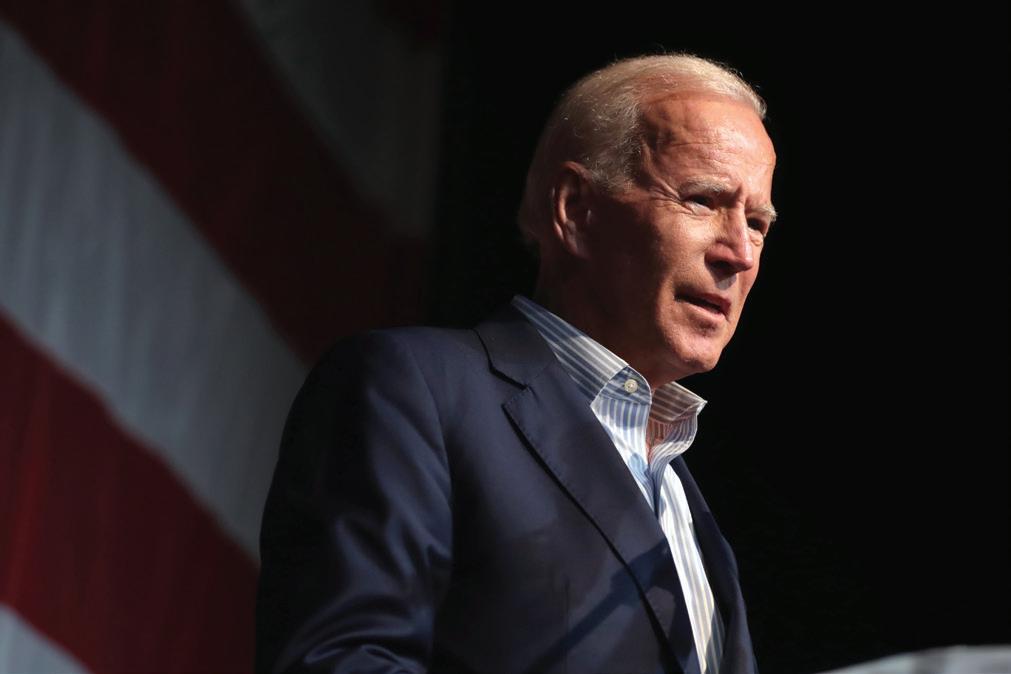
$1.9 TRILLION RELIEF PACKAGE
Congress quickly moved the $1.9 trillion American Rescue Plan through the House and Senate using the budget reconciliation process, which means a bill can pass the Senate with a simple majority, by March 14, which is when pandemic unemployment insurance ran out. Two items of note during the recent Senate and House markups:
• The Senate voted in support of a budget amendment to establish a dedicated $25 billion restaurant relief fund as part of the package and the House kept those funds in when writing its bill. • The House included language in the bill to raise the minimum wage to $15 per hour by 2025, but ultimately, that provision was left out.
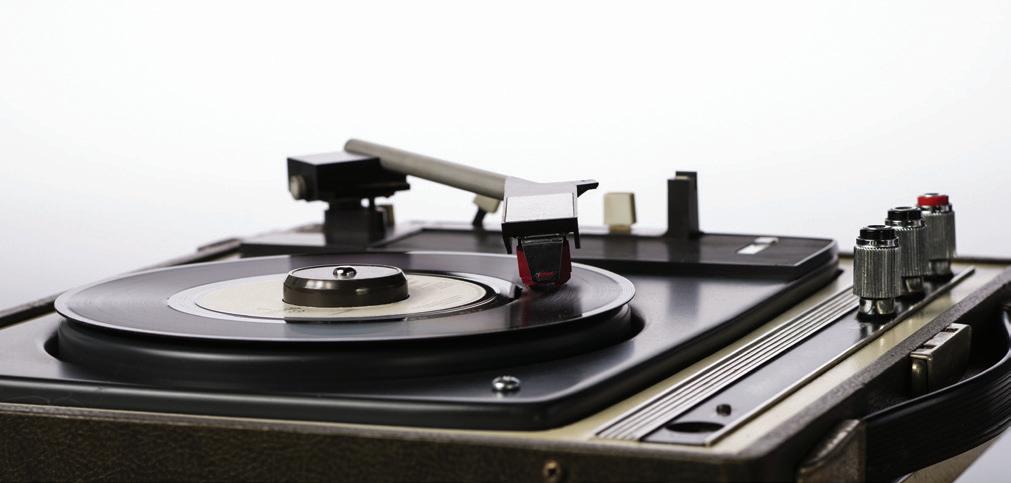
THE SAVE THE BEER ECONOMY COALITION
As the fights over excise and other beer taxes move from Congress to the states, ABL is partnering with organizations in the hospitality, retail, agriculture and manufacturing sectors to form the Save the Beer Economy coalition. The coalition “seeks to rally support to these industries and the consumers they serve by educating lawmakers at the state and federal levels on the negative impacts these tax increases would have on workers, consumers and businesses.”
Excise tax increases may be on the agenda in nearly two dozen states in 2021, so it is essential to speak out on the issue as soon as possible. ABL and its members have a long history of opposing tax increases on alcohol of all kinds by federal, state or local governments. The Save the Beer Economy website (savethebeereconomy.com) contains an advocacy tool that allows individuals to contact their elected officials via email or social media to tell their local lawmakers to oppose beer tax increases. TLW
EXECUTIVE BRANCH ROUNDUP
• Dietary guidelines. On December 29, 2020, the United
States Department of Agriculture (USDA) and Department of Health and Human Services (HHS) issued new dietary guidelines that keep current allowances on alcohol consumption unchanged (up to two drinks a day for men and up to one drink a day for women). • Standards of fill. On December 29, 2020, the Alcohol and Tobacco Tax and Trade Bureau (TTB) added seven new standards of fill for wine and distilled spirits. The new container sizes are 355, 250 or 200 mL for wine, and 1.8 L, 900 mL, 720 mL or 700 mL for spirits.
• Music licensing and consent decrees. On January 15, 2021, the Department of Justice announced that it would be making no changes to the consent decrees that govern radio’s relationship with the American
Society of Composers, Authors & Publishers (ASCAP) and Broadcast Music Inc. (BMI).
ABL is the voice of America’s beer, wine and spirits retailers in Washington, D.C. ABL represents the TLW and its many members, as well as thousands of other on- and off-premise retailers of beverage alcohol across the United States.
TLW Member of the Year Jennifer Collison is a leader who has generously given to better her community.Leader A COMMUNITY
By Tasha Downing
Jennifer Collison, owner of Local Folks Restaurant & Pub, loves her Burlington community and it shows. From the sea of familiar faces that have frequented her place since 1999 to the TLW members who sing her praises, Collison’s dedication to helping everyone throughout her community — which she refers to as family — is evident.
“If you stop by Local Folks, everybody will treat you like family, regardless if you’re from around here or not,” she says. “The community takes care of each other. When we were shut down and just doing curbside [pickup], everybody came out and supported us to keep us going.” Collison insists this inclusive outreach has been consistent over the years, whether the area has been hit by a tornado, a flood or, most recently, a global pandemic. And she knows how to pay the kindness forward.
Collison only takes one weekend off from working at her busy bar and restaurant each year. For the past 10 years, she has spent that weekend walking 60 miles to support the Susan G. Komen Foundation for breast cancer awareness.
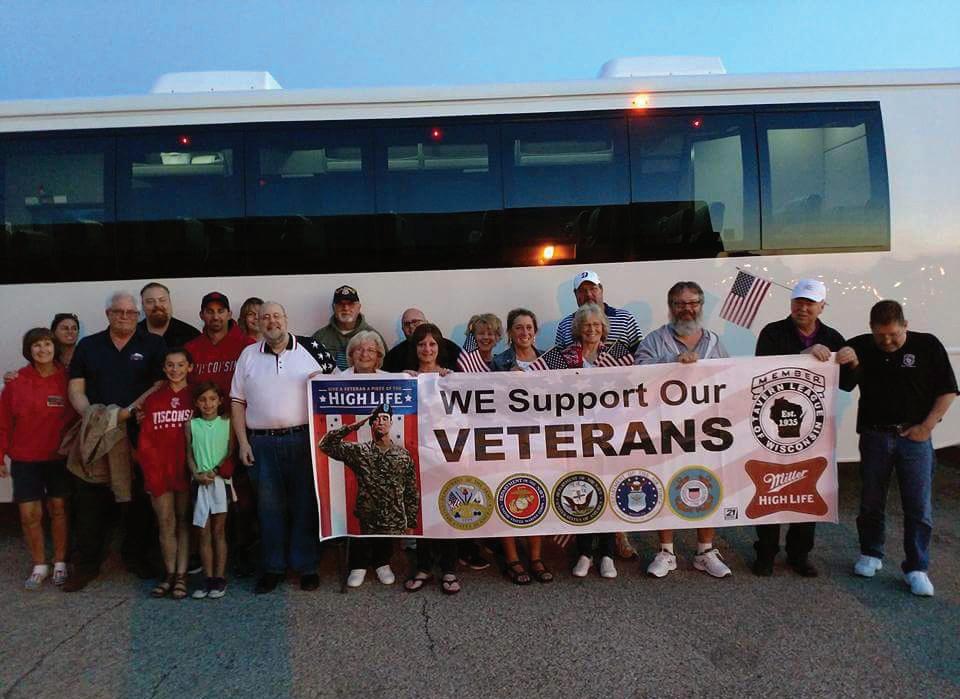
Renee Peterson of Siemers Cruise In Bar & Grill in Walworth is not only the Walworth County Tavern League secretary, treasurer and SafeRide coordinator, but she is also a first district director alongside Collison. In fact, Peterson is the TLW member who nominated Collison for the Member of the Year award. She explains that, along with having raised nearly $1 million for the Susan G. Komen Foundation, Collison’s community support is endless.
“She gives free meals when needed, donates a lot to the Kenosha County Sheriff’s Department and Kenosha Fire Department, supports Westosha Head Start and VetsRoll, and adopts kids every year for Christmas,” says Peterson. “She donates gift certificates, and has also held fundraisers for ALS [amyotrophic lateral sclerosis, a.k.a. Lou Gehrig’s Disease] and a blanket drive for Tiny Hooves Sanctuary for abandoned farm animals.”
Currently serving as president of the Kenosha County Tavern League and treasurer of the Kenosha City Tavern League, as well as first district director, Collison initially became a member of the TLW soon after opening Local Folks. She was then
able to become more active once her children were school-aged. “After attending my first meeting about 14 years ago, I was hooked,” she says. “It’s great to know everybody else is in the same boat you are, with the same problems and struggles. It’s nice to know there are people out there who understand what’s going on. So I stay active and help out.”
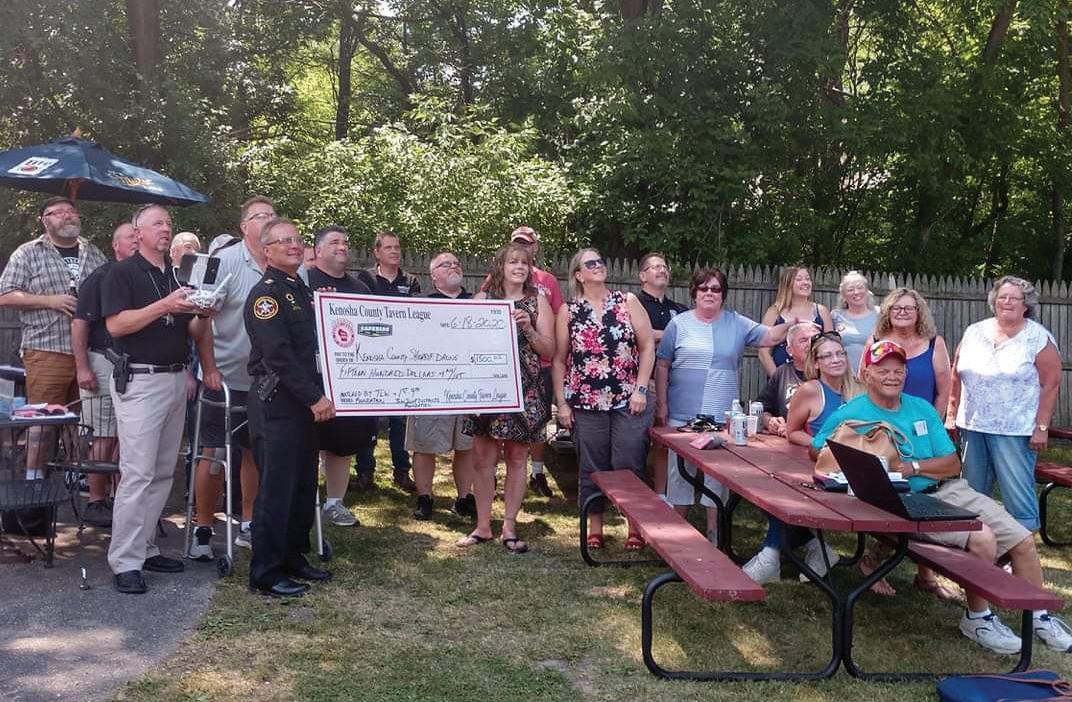
Jennifer Collison presents a check from the Kenosha County Tavern League to the Kenosha County drone unit in June 2020. Members from the TLW’s First District welcome home a VetsRoll group from their trip to Washington, D.C.
— Jennifer Collison, Local Folks Restaurant & Pub
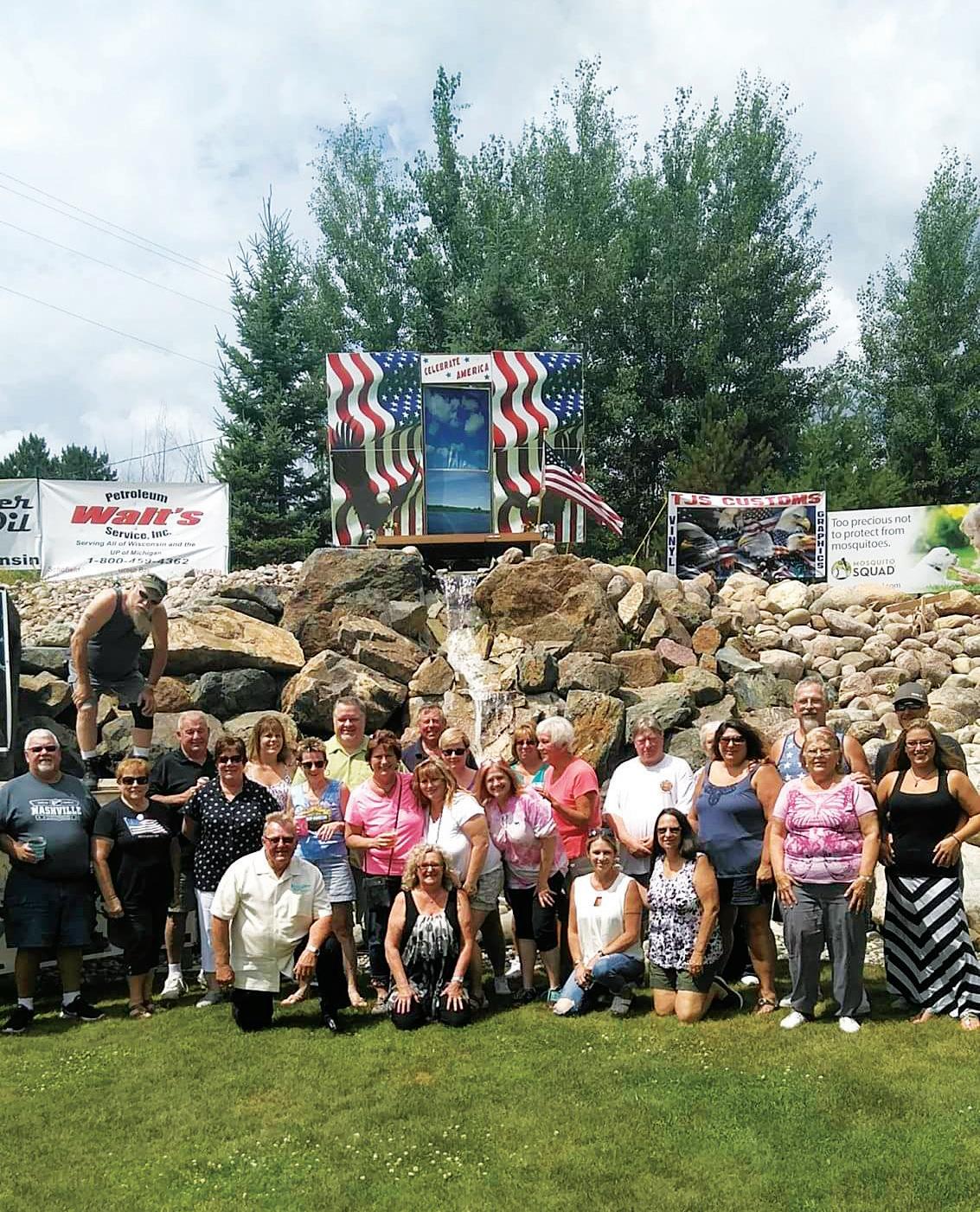
The Kenosha County Tavern League stops to attend a meeting in Langlade County during a summer trip to Potawatomi Carter Casino. Collison credits the TLW with supporting its members through legislative action that makes a huge difference, especially over the last year as TLW members continue to struggle to deal with COVID-19 and keep their businesses afloat. She says the work the association does to help food and beverage businesses, like lobbying for a bill to allow customers to purchase cocktails to go and pushing for Paycheck Protection Program (PPP) loan forgiveness, is crucial to its members’ recovery process.
Collison’s advice to current and potential TLW members is to support the league by keeping up to date on current government policies and agendas that can potentially affect business. “Get involved and pay attention to what’s going on legislatively,” she says. “Stay in contact with representatives in your local area.”
Collison was surprised when she found out that she was the TLW Member of the Year. “It really means a lot,” she says. “I had no idea that people cared and thought that much of me,” a characteristic response from Collison, a community leader who generously gives to better not only her business, but her community as a whole as well. TLW
Local Folks Restaurant & Pub
39601 60th St., Burlington, WI 53105 (262) 539-3200 facebook.com/localjen
© 2021 Society Insurance




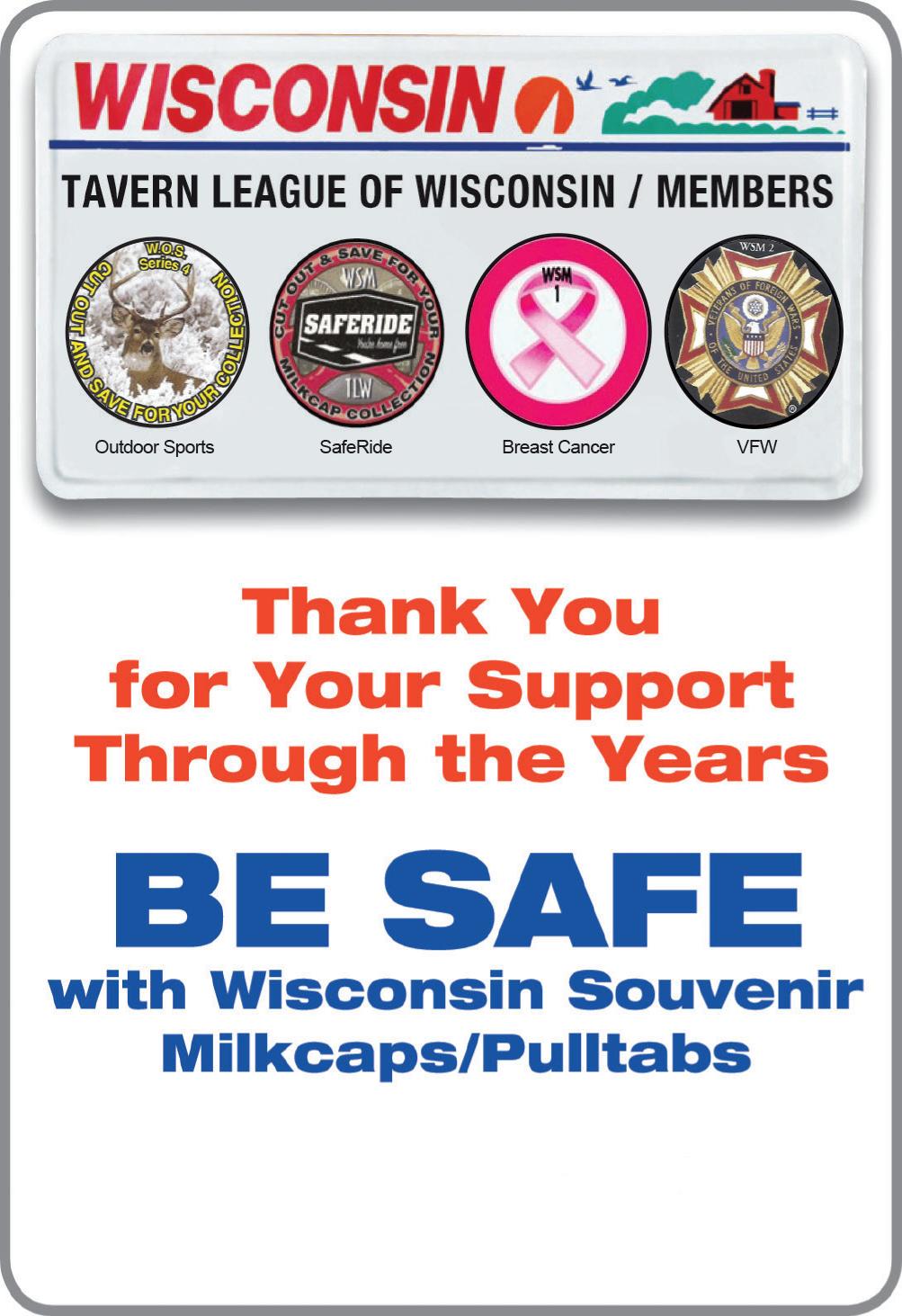
262-336-9624 wimilkcaps.com
Filling you up now so you won’t be hungry later. Small detail. Big difference.
Today’s cut corner can easily turn into tomorrow’s missing piece. That’s why it’s so important to invest in staying protected against the unique risks that restaurants and bars face. With forty years of experience in specialized coverage, we’re prepared to handle those challenges so that you can focus on what’s next.
To learn more about how we deliver the small details that make a big difference, call 1-888-5-SOCIETY or visit societyinsurance.com.









